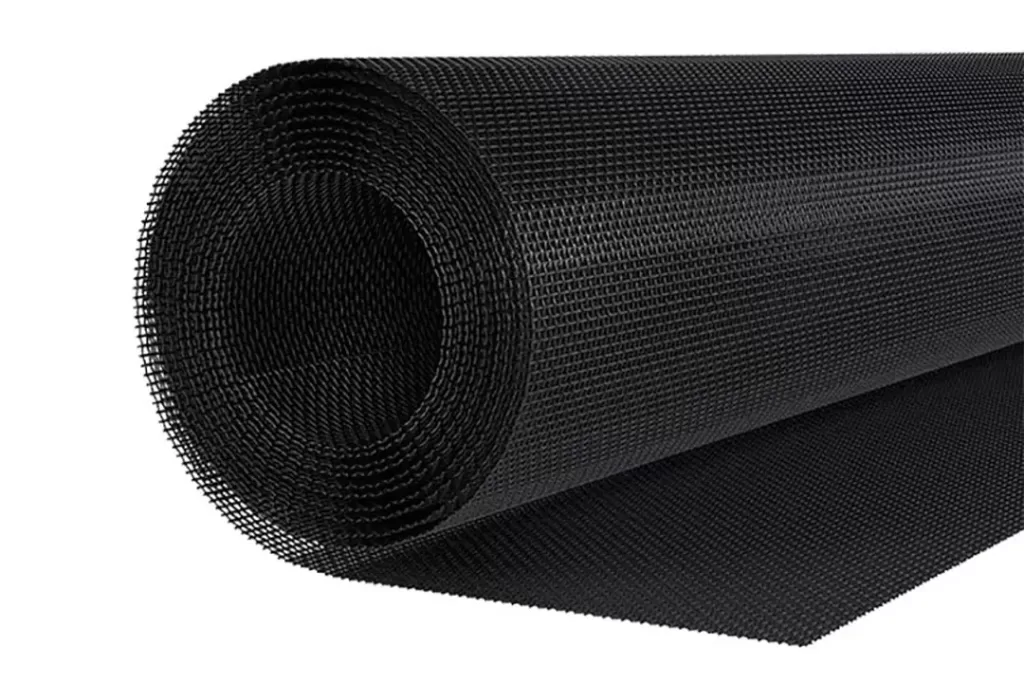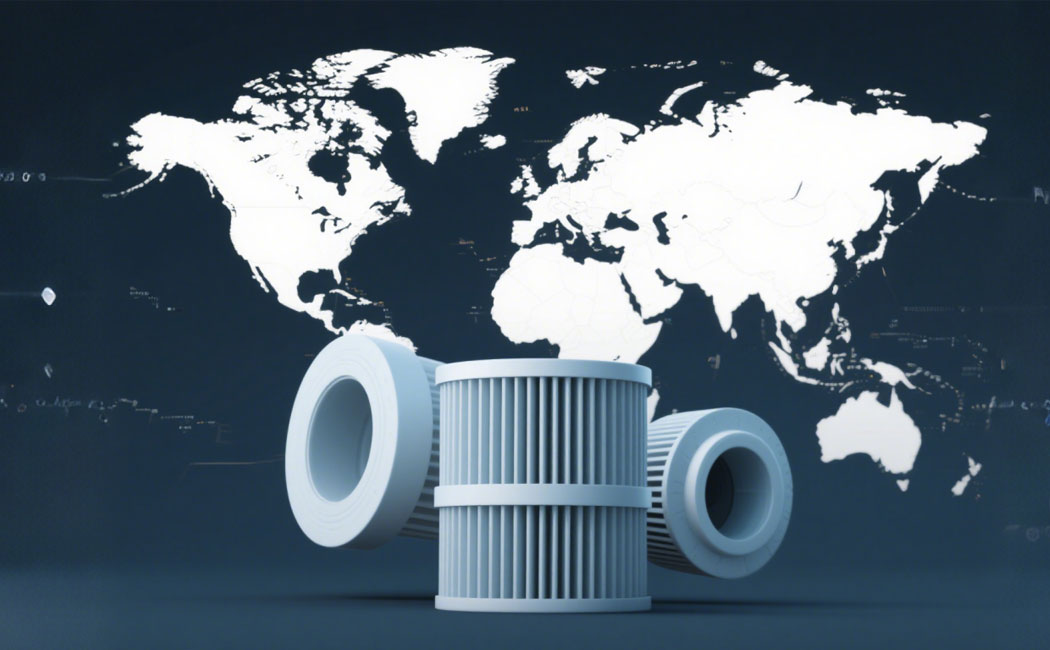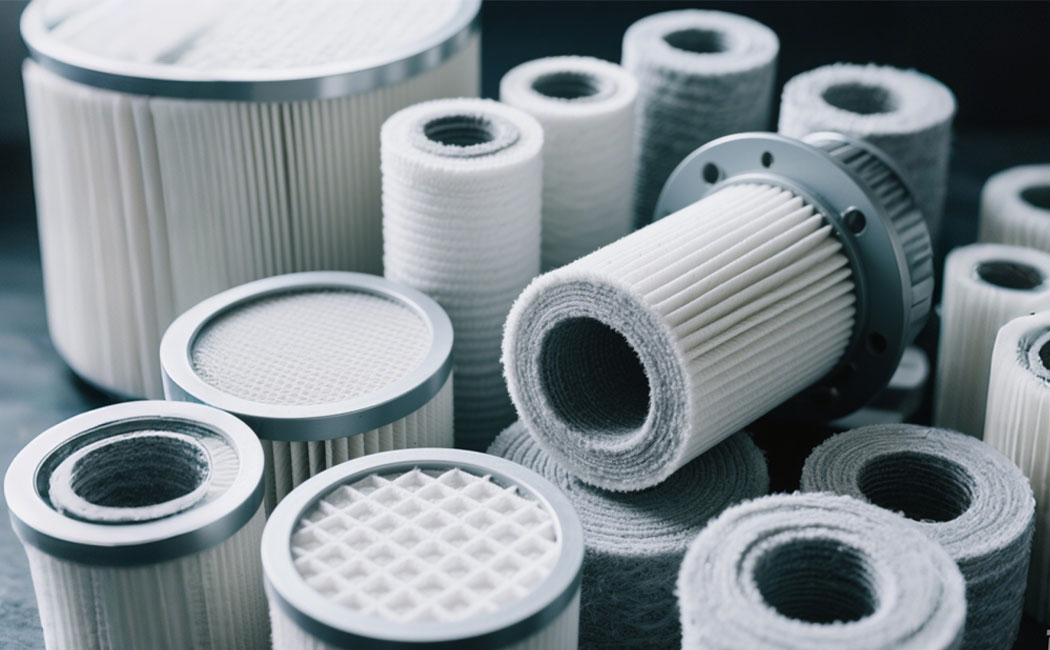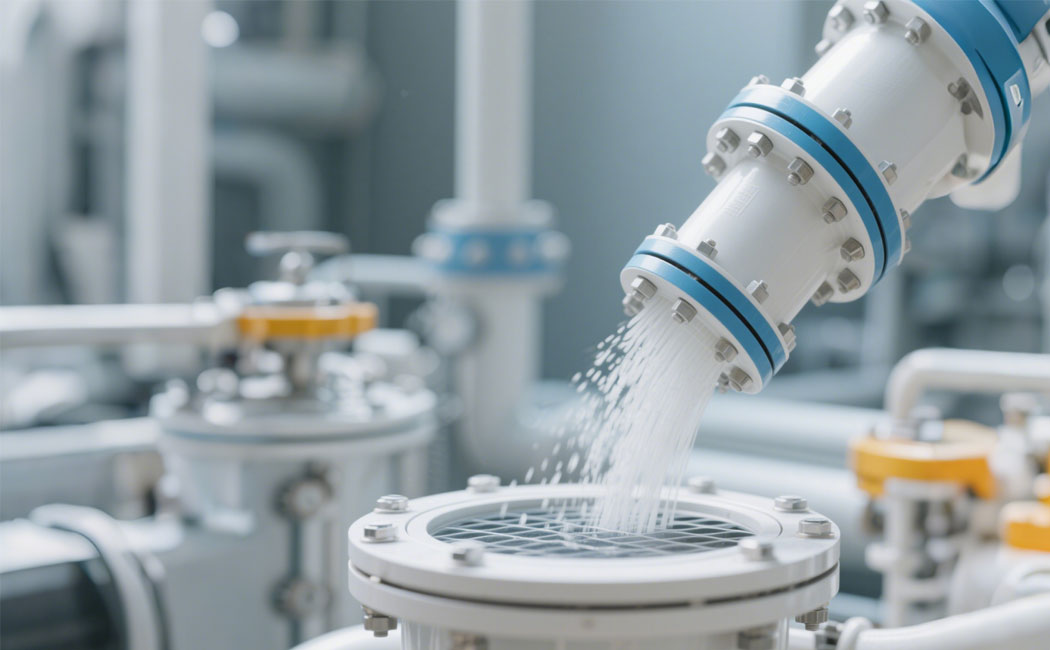In industrial filtration and protection solutions, epoxy coated wire mesh is a multifunctional and reliable material, which can be used for hydraulic systems, air filtration and protection. It is usually made of stainless steel mesh, aluminum mesh or low-carbon steel mesh, which meets the needs of the industry. Let’s discuss its definition, manufacture, advantages and applications.

What is epoxy mesh?
Epoxy resin mesh-formally known as epoxy resin coated wire mesh-is an industrial mesh with special surface treatment to improve its performance. It starts with the basic net woven from various kinds of metal wires; Common substrates include stainless steel mesh, aluminum mesh, and mild steel mesh, chosen for app-specific properties.
The key step in manufacturing epoxy-coated wire mesh is electrostatic spraying: special epoxy powder is uniformly attached to the basic mesh (e.g. Stainless steel net). Then, controlled heat and time melt the powder into a dense protective layer. This layer boosts functionality, making epoxy coated wire mesh resistant to environmental and operational stress.
Unique advantages of epoxy coated wire mesh
Epoxy coated wire mesh, especially stainless steel wire mesh, is better than uncoated wire mesh or other coated wire meshes, and it is ideal choice for manufacturing, automobile and other industries.
1.Excellent corrosion resistance and chemical resistance
Epoxy resin coating protects the baseline (stainless steel mesh, aluminum or low carbon steel) from moisture, moisture, acids and alkalis. Unlike uncoated stainless steel mesh, which can resist harsh chemicals over time, epoxy-coated wire mesh adds extra protection and prolongs its service life in harsh environment.
2.High Temperature resistant
There is usually high heat in industrial environment, and epoxy coated wire mesh can handle this heat well. Properly cured epoxy maintains integrity at high temps, preventing warping or degradation. This applies to the engine/mechanical air filters (which is crucial for heat resistance). Paired with stainless steel mesh (naturally heat-tolerant), epoxy coated wire mesh becomes even more robust.
3.Light in weight, but elastic
Despite the durable coating, epoxy coated wire mesh is still very light, which is the key to the hydraulic/aviation parts of automobiles. Epoxy resin increases the minimum weight to the substrate (e.g. Stainless steel mesh), but the elasticity is enhanced, so that it can withstand the pressure like the fluid pressure of the hydraulic filter without tearing.
4.Consistent Aperture to achieve consistent performance
The wire mesh coated with epoxy resin has uniform pore size (wire mesh gaps), which is very important for filtration. Whether the base is made of stainless steel mesh or aluminum mesh, it can ensure stable flow/efficiency-epoxy resin can be applied evenly without blocking. This reliability makes it perfect choice for the support layer of hydraulic/air filter.
5.Environment Protection
Epoxy powder used for epoxy-coated wire mesh has low VOCs, which makes it sustainable. Its longer service life (anti-corrosion) reduces replacement of waste. Substrates like stainless steel mesh are recyclable, boosting eco-friendliness.
Main application of epoxy coated wire mesh
Epoxy-coated wire mesh has excellent filtration and protection performance, which benefits from its corrosion resistance, uniform pore size and flexibility.
1. Hydraulic filter supporting Layers
Wire mesh coated with epoxy resin (usually with stainless steel mesh) supports hydraulic filter media (paper/synthetic fibers) to prevent it from collapsing under fluid pressure. Epoxy resin is resistant to the corrosion of hydraulic fluid, and uniform pore size ensures the stable flow. This is very important for construction/automotive/manufacturing hydraulic systems.
2. Air Filter Supporting Layers
Air filters (HVAC, industrial machinery, automobile engines) need medium support. Epoxy coated wire mesh is lightweight, resilient, and resistant to dust, moisture, and temperature shifts. Stainless steel mesh is used to deal with engine heat; In HVAC system, it can prevent moisture, improve efficiency/reduce energy consumption.
3. Window Screens
Epoxy coated wire mesh (aluminum/mild steel base) works for window screens. Epoxy resin can resist outdoor rain corrosion, is light and easy to install. It is not easy to tear, and has a custom colors to match the frame-more durable than traditional rust-prone screens.
4. Protective Screens
Epoxy coated wire mesh is used in mechanical protection, safety barrier and agricultural pest protection. It can block moving parts (industry) or intruders (security), while allowing visibility/airflow. It is difficult to cut with stainless steel mesh; Epoxy resin is resistant to damage and corrosion.
Why choose epoxy coated steel wire mesh and stainless steel mesh base?
Although epoxy coated wire mesh uses various substrates, epoxy resin+stainless steel wire mesh is the most prominent. Stainless steel mesh provides strength, corrosion resistance and heat resistance, and epoxy resin enhances these properties.
For tough applications (chemical hydraulic filters, high-heat air filters), epoxy coated wire mesh with stainless steel mesh is unmatched. Stainless steel provides a solid foundation; Epoxy resin shields chemicals/moisture, and even stainless steel can not be treated alone. It reduces maintenance costs and downtime. In addition, stainless steel net can be recycled, which makes this combination sustainable.
Conclusion
Epoxy coated wire mesh is essential for industrial filtration, protection and daily use. Its manufacture (base net+epoxy resin coating) has corrosion resistance, heat resistance, portability and uniform apertures.
With customizable specifications (substrate, coating thickness and size), it is suitable for hydraulic filters, air filters, screens and protective devices. Coupled with stainless steel mesh, it provides top-class durability-very suitable for demanding environments.
As industries seeks for reliable, efficient and sustainable materials, epoxy-coated wire mesh is still the first choice. It can withstand harsh conditions, reduce costs and provide consistent performance for any high quality grid requirement.






